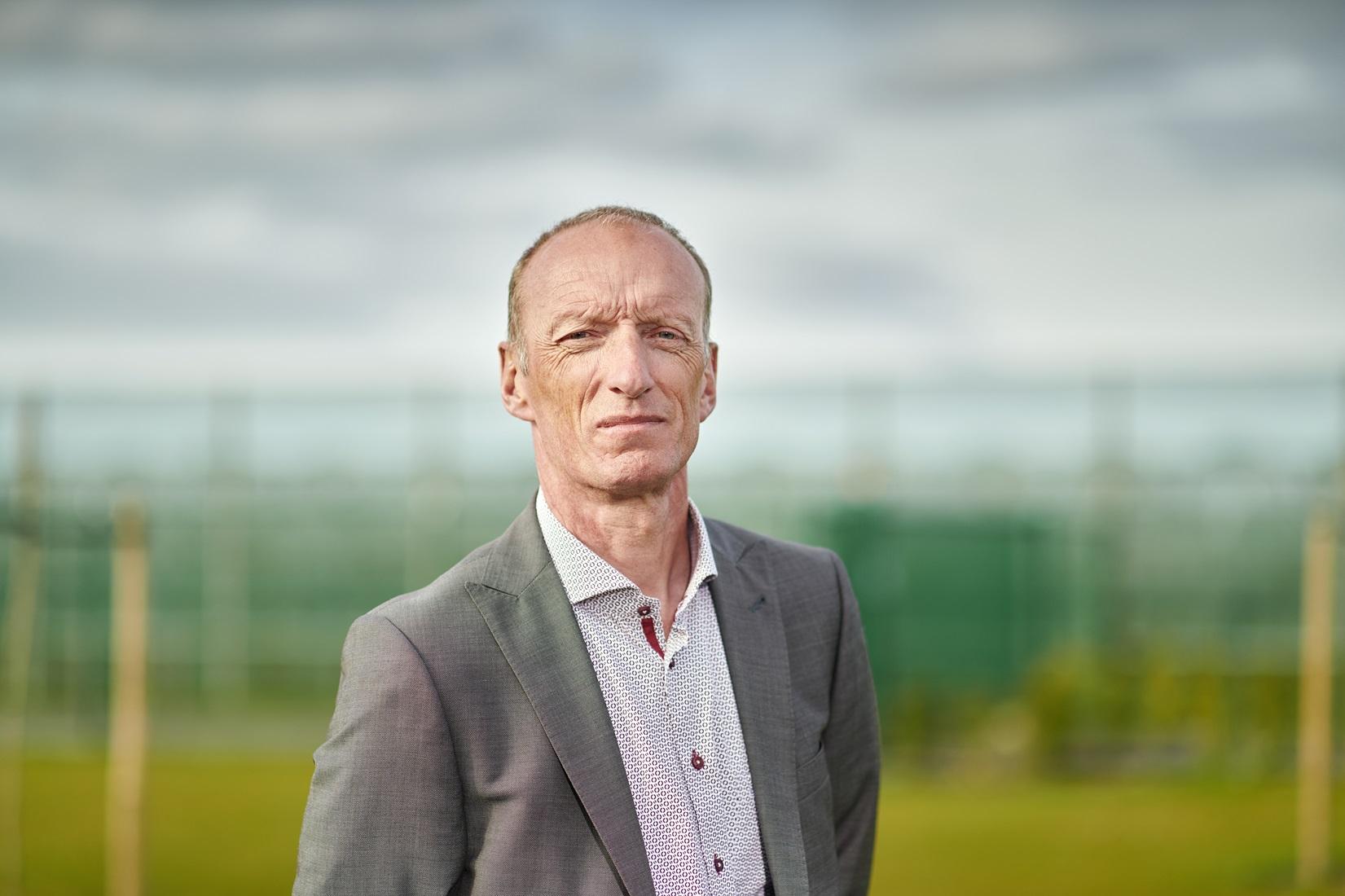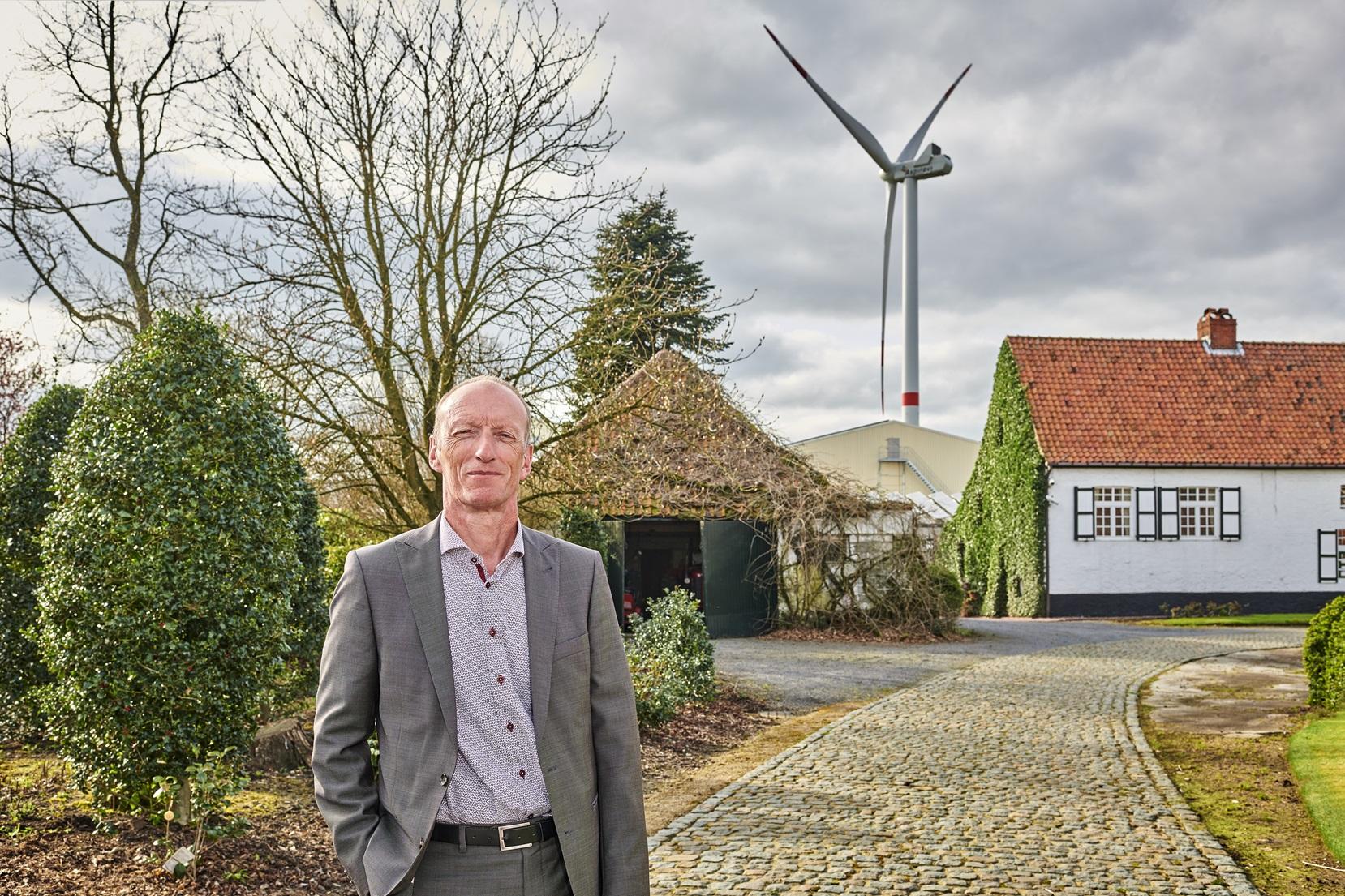"Aspiravi continues to pioneer" This eye-catching title opened the cover article which last week appeared in "Ondernemers" (Entrepreneurs), the magazine from Voka West Flanders. In an in-depth interview, Rik Van de Walle - CEO Aspiravi Holding - provides an insight into the future of the Aspiravi Group and the many opportunities and challenges that will come its way.
Aspiravi, based in Harelbeke, was a pioneer in 2002 with respect to wind energy. Twenty years later, CEO Rik Van de Walle can look back with pride at the journey he has taken. Through its strategic focus on renewable energy, Aspiravi has contributed to more green energy in Belgium, through the installation of 244 onshore and 172 offshore wind turbines, totalling 1,700 megawatts of installed capacity. Behind Aspiravi, you will find 94 municipal shareholders, 13,200 citizen cooperators and around 90 motivated employees.
How can Aspiravi distinguish itself in the busy Belgian market?
I see two elements. One, the speed with which we try to obtain permits for wind energy projects. Being able to adapt quickly is vital for this wind energy sector. Anyone who has land in their portfolio holds the cards; it’s that simple and that difficult. So, you must have adequate stock in your portfolio. Second, you must not acquire land without thinking it through. The location is of the utmost importance. I am, of course, talking about onshore. Offshore, we have ensured that we have an adequate share of various wind farms in the North Sea. This is now the case for four projects in operation, which equates to an offshore capacity of 1,012 megawatts, from a total of 1,700 megawatts. In one of the wind farms, Northwind, we have increased our participation to 70%.”
Offshore has clearly become more significant for Aspiravi. Are there specific reasons for this?
“There is a combination of factors. But space, without doubt, is the most significant reason. On land in Belgium, a site capable of generating 12 megawatts is already ample. At sea, Rentel (42 wind turbines), for example, has a capacity of 309 megawatts. You can see a clear difference. Aspiravi can’t be anything other than delighted with the vision that specific people have developed in the energy landscape of the future. I am thinking, in the first instance, of Alain Bernard of DEME. He could see it all. For DEME, this meant exploiting a new niche within the dredging sector. The second person who we must thank is Johan Vande Lanotte. He ensured that the first permits could be delivered within a legislative framework. And don’t underestimate what he achieved; it was an onerous task. We must also mention Limburg’s Turbowinds, the first to install wind turbines on the breakwater in Zeebrugge, and Jo Geebelen (Interelectra), who participated in this story, which ultimately led to C-Power.”
Our country did not achieve its climate ambitions for 2020. Will we realise the ambitions for 2030?
“We should be building almost 140 megawatts per year of wind power projects in Flanders to meet the 2030 target, but that capacity is not being built. It has been said many times before but a mind-shift is vital in this context. The vast majority realise that and support the idea. But a minority is dictating something else. I guess we can rightly call that a problem?”
You must first be an entrepreneur before you can be a good manager.
Companies that wish to install wind turbines on land do exist but, due to the complex processes involved, it is not always a happy marriage. Should we point the finger at the government here?
“Businesses with their own wind turbines on their land ought to be a growth story, but they are not. The reason for this is not hard to identify; it’s the permit process. That is part of the challenge. We want to support companies in this context as much as possible. The government understands that the slow pace is an issue but, just like everyone else, policymakers must follow a specific judicial procedure. What I struggle with, however, is that the procedures are not bedding in faster. There is a social phenomenon whereby many bodies or citizens find that their individual interests are considered more important than the general good. Above all, I would argue for a more reasonable approach; of course, there should be a judicial process, but I have a problem with all the to-ing and fro-ing. There should be an understanding that holding up the economy inhibits prosperity. Luckily, we have been successful in acquiring permits here and there but we also have 200 MW of permits in appeals and that is far too much.”
You have been at the helm of Aspiravi for twenty years. Is the innovation train running even faster now?
“The impact of innovation is completely underestimated. Nowadays, we are achieving things that, in the past, would never have seemed possible. The Vesta wind turbine from 1998 (a project in Middelkerke) had a 47-metre rotor. Now, there is talk of wind turbines with a rotor of around 250 metres, mainly for offshore projects. The main aim is to make energy cheaper. However, the pure R&D potential does not lie in our hands because we are independent of the major players who produce the wind turbines, such as Siemens, Enercon, Vestas or Nordex.”
Why does Aspiravi not make wind turbines itself?
“That’s not going to happen. The financial clout that is required is just too significant. A strategic card that we have been dealt, however, is that of green electric energy supplier to major consumers via our Aspiravi Energy branch. It is like a flywheel that is slowly getting up to speed and which will offer huge opportunities once it reaches cruising speed.”
Aspiravi has just signed a collaboration with Google. To do what?
“Google is one of the giants that is completely immersed in climate ambitions and acts accordingly. Operating in a 100% CO2-neutral manner is clearly written into their plan. They are committed to buying energy from wind farms that we are still building, from the moment that they become operational. That is called future vision.”
Aspiravi began in Belgium but is now at home across the entire European market. How far does this ambition extend?
“After Spain and France, we are now also working in Scotland on a huge offshore project with a range of partners, and we are collaborating with a local partner in Bosnia-Herzegovina. It is never easy to get a foothold in another country but we have nevertheless secured our own representative offices in both Paris and Barcelona. It’s still worth investing, if only because you’re talking about so many larger markets there. If we can pick up a few crumbs, it will have been more than worthwhile. This not only includes wind turbines, but also solar panels, agri-PV projects and batteries, for example. It’s clear to see; we are focusing on geographic but also technological differentiation. That said, Belgium remains our home market, where we still see a great deal of growth potential.”
We are focusing on geographic but also technological differentiation.
No companies exist on an island. So, what can a business give back to society?
“Due to its unique shareholder structure, Aspiravi has given a great deal back to society and, in turn, citizens via its shareholders, which include almost 100 municipalities. Furthermore, we are a 100% Belgian company, which makes us distinct in our sector.”
In your organisation, are you comfortable rubbing shoulders with the politicians on board?
“Yes, no problem. And there’s a simple reason for that; the politicians in our organisation do not engage in politics as they are board members and help guide the company. They all have an interest in keeping the company running efficiently, being firmly anchored here, and ensuring that it is financially healthy in terms of dividend policies. The structuring via regional holdings helps in this respect. My experience has been positive and the company’s growth bears this out.”
What is the best possible definition of entrepreneurialism?
“That’s a tricky question (thinks for a while). Let me just say this: being an entrepreneur is like taking the initiative. Daring to do things, even though the risks cannot be underestimated. Entrepreneurs are, by definition, also flexible.”
Do you feel like a manager or entrepreneur?
“Now, I am absolutely a manager. But in 2002, I started out as a 100% entrepreneur, with five employees. Those were the pioneering days of Aspiravi. Now, 90 people work in our company. I’ll be honest, being an entrepreneur is better fun and more educational than being a manager. As a manager, your job involves a lot of repetition. You must maintain a helicopter view, while an entrepreneur has his feet firmly fixed on the ground. But I think, in my career, I have made a natural and logical evolution; you must be an entrepreneur first before you can be a good manager. I made this shift in the year 2010. At that time, Aspiravi was going through its first growth spurt and needed more people to fulfil all the roles. If you don’t start recruiting, you will inhibit the organisation. You realise you can’t do everything yourself any longer. The issues became more complex when Aspiravi entered the offshore market. Later, there also followed the first biomass plant. When you take these types of steps, as a manager you must ensure that you recruit the very best people, people who have more knowledge than you.”
Sometimes, they say that the best managers are those who can be largely absent. Would you agree?
“Learning to take a step back from certain issues while the company grows is certainly good for the organisation. That is also the most difficult part. It was a huge challenge for me. But, you have to do it in the interests of the company.”
Finally: Jo Colruyt said recently that a business is more than figures and tables. Have you spoken to him?
“And is he right? People are so important. I must admit that I’m not the best people manager. Technology and figures are more my thing. But, to cover my weakness, I have always maintained the principle that I will only work with people who are, without exception, experts in their field. It is then up to me to ensure they work well together.”
For Rik Van de Walle, it’s as clear as day; Ventilus is vital. “To enable the growth of our West Flanders economy, an expansion of the network infrastructure and the corresponding additional network capacity is vital so that our West Flanders businesses can develop and flourish. Don’t underestimate the risk of businesses deciding to relocate elsewhere if there is a market for their product but there are no expansion opportunities due to a lack of energy. Not to mention falling behind on climate goals.”
(Text: Karel Cambien – Photos: Stefaan Achtergael – Translation of original text: Oneliner)

